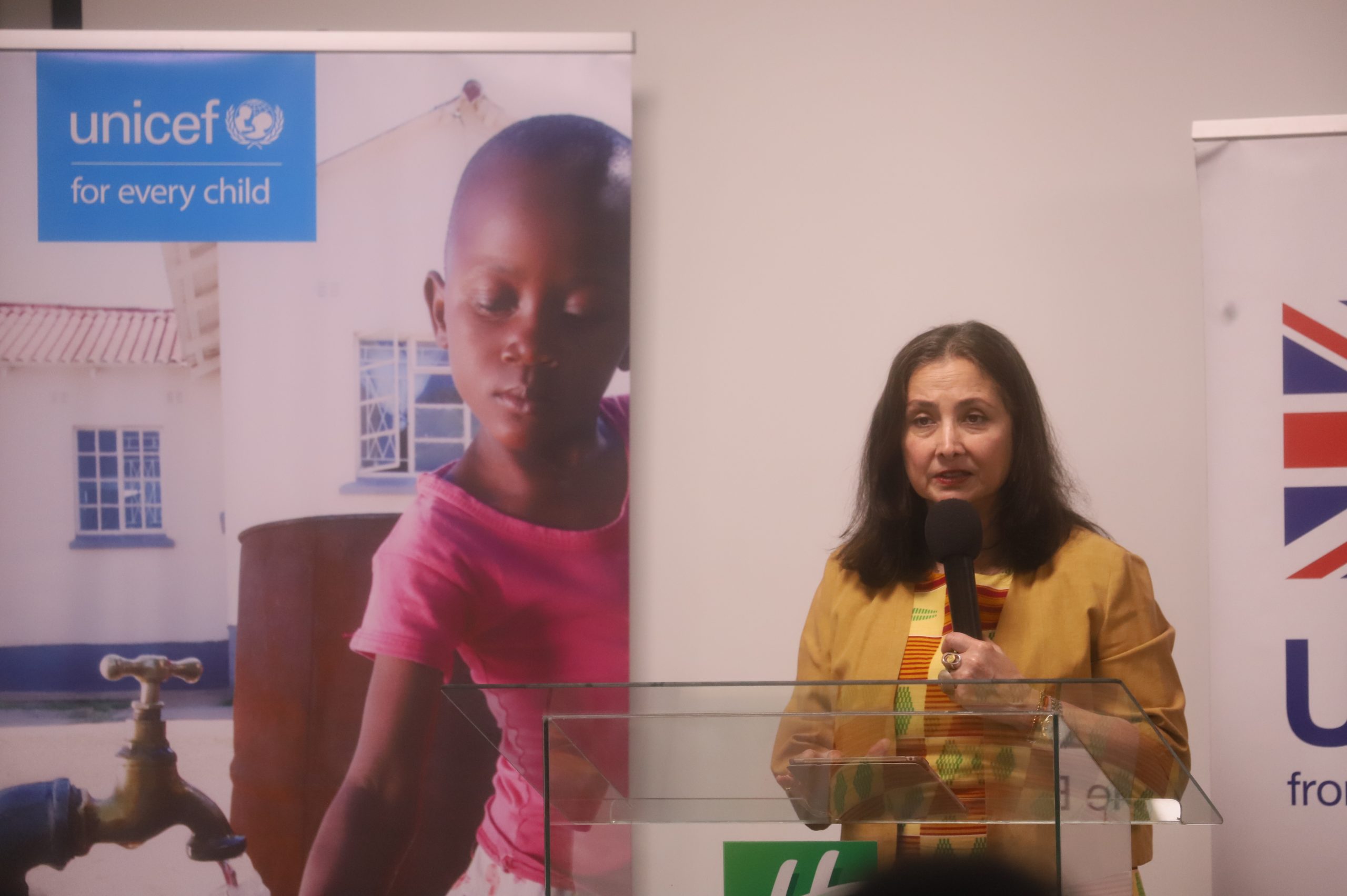

By John Mokwetsi
Mutare District, Zimbabwe – Zimbabwe’s stakeholders in Water Sanitation and Hygiene (WASH) recently held the long-awaited Joint Sector Review (JSR) in Mutare, Manicaland Province, which sought to take stock of the sector as well as address emerging issues over the past seven years in order to define commitments for necessary improvements.
The JSR was last held in 2011 making this year’s review workshop a milestone and significant.
Laylee Moshiri, UNICEF’s representative in Zimbabwe speaking at the sector review said: “This is undoubtedly one of the most important meetings in recent years for the WASH sector to evaluate progress towards achieving national and global water and sanitation goals. In the same vein, an opportunity is provided to update the strategies in place to achieve, by 2030, universal and equitable access to safe and affordable drinking water, as well as adequate and equitable sanitation and hygiene services provision for all.”
Laylee added that in the deliberation special attention has to be paid to the needs of women, girls and those in vulnerable situations. This she said on the backdrop of the frequency of the outbreaks of cholera and typhoid in the last 12 months in the country.
Alluding to the fact that 2019 marks the 30th anniversary of the United Nations Convention on the Rights of the Child she said: “The WASH Joint Sector Review should strive to chart the way forward so that we can fulfil this human right to at least a basic level of WASH services provision for the children of Zimbabwe. These rights are also enshrined in the Constitution of Zimbabwe, Amendment No. 20. Section 77 that decrees the right of: “Every Person … to safe, clean and potable water and sufficient water and food”.
Wash concerns raised
Giles Enticknap, the Deputy Head of Mission in Zimbabwe who also spoke at the event noted that, the people of the UK, through the Department for International Development, DFID, was proud to be Zimbabwe’s long-standing development partner in the WASH sector.
- Chamisa under fire over US$120K donation
- Mavhunga puts DeMbare into Chibuku quarterfinals
- Pension funds bet on Cabora Bassa oilfields
- Councils defy govt fire tender directive
Keep Reading
He zoomed on some of the concerned that includes the lack of significant improvement in the national WASH coverage.

Giles said: “Over 20% of people still do not have access to improved source of drinking water and at least 60 % lack access to safe sanitation facilities in Zimbabwe. There is also increased vulnerability and outbreaks of diarrhoeal diseases linked to poor water and sanitation.”
He raised a critical concern of the impact of the lack of access to improved water and sanitation on the poor, girls and women who shoulder the major responsibility in household water collection and use, missing class, losing productive time, and sometimes even put themselves in danger accessing water from isolated water sources.
This makes this joint sector review an ideal platform and perfectly timed to explore and come up with sustainable technical and financial solutions to improve access to water and sanitation for the people of Zimbabwe. We think this work cannot wait any longer! The UK contribution to this joint sector review is motivated by the need to have an urgent and lasting solution to improve water and sanitation service delivery in Zimbabwe.
Investment in improving WASH
Through the Rural WASH Programme, which started in 2012, the government of the UK and its people have provided £50 million to provide safe drinking water, sanitation and knowledge on hygiene to over 4 million people in 42 rural districts of Zimbabwe. Through this programme, the have worked with the government, UNICEF and other partners in strengthening the WASH national and sub-national coordination structures, including strengthening the Rural WASH Information System (RWIMS). We believe with additional support, especially from the government honourable minister, Zimbabwe can have one of the best WASH coordination and management system.
WASH critical to economy
Rington Chitsiko, permanent secretaries of Lands, Agriculture, Water, Climate and Rural settlement said of the JSR: “This is in appreciation of the catalytic role that sustainable water, sanitation and hygiene services have on economic recovery and development efforts and emphasises the need to ensure sustainability is mainstreamed in all our work as we strive towards the Sustainable Development Goals, particularly SDG 6 on water, sanitation and hygiene which requires that we ensure availability and sustainable management of water and sanitation for all.”










